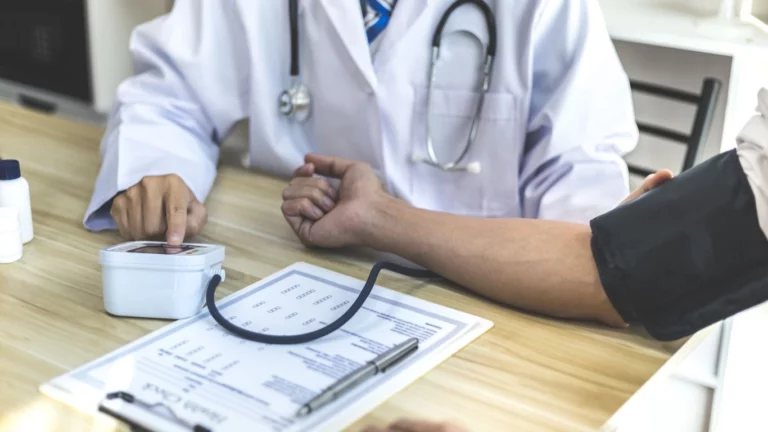Is GERD Linked to Cancer Risk? A Comprehensive Guide
Wondering if your GERD might increase your risk of cancer? Let’s dive into it and clear things up!
If you’ve ever dealt with GERD (Gastroesophageal Reflux Disease), you know it’s more than just a little heartburn now and then. GERD involves the regular reflux of stomach acid into the esophagus, leading to uncomfortable symptoms like acid regurgitation, chest pain, and even trouble swallowing. But here’s the big question: Is GERD linked to a higher risk of cancer, particularly esophageal cancer? Let’s break it down in this guide!
What Is GERD and How Does It Affect Your Body?
GERD is a chronic condition where stomach acid or, occasionally, bile irritates the food pipe (esophagus). Normally, a valve at the end of the esophagus called the lower esophageal sphincter (LES) prevents stomach contents from backing up. But with GERD, the LES relaxes or weakens, allowing acid to flow back into the esophagus.

While GERD can often be managed with lifestyle changes and medication, it’s important to note that, over time, untreated GERD might cause more serious problems. Some of these issues might include scarring of the esophagus, narrowing of the food pipe (esophageal stricture), and, in rare cases, esophageal cancer.
So, Is GERD Linked to Cancer Risk?
The short answer: Yes, there’s a connection, but it’s a bit more complicated. People with long-term GERD are at higher risk for developing a condition called Barrett’s esophagus, which is where the lining of the esophagus changes due to repeated exposure to stomach acid. This condition is a known risk factor for esophageal cancer. But just having GERD doesn’t automatically mean you’ll develop cancer.

1. Barrett’s Esophagus and Cancer Risk
Barrett’s esophagus occurs when the normal squamous cells in the esophagus are replaced by columnar cells, which are more similar to the cells that line the intestines. These changes are thought to be a result of long-term acid reflux. While Barrett’s esophagus itself doesn’t cause cancer, it increases the chances of developing esophageal adenocarcinoma, a type of cancer that affects the lower part of the esophagus.
2. Esophageal Cancer and GERD
Esophageal cancer has been increasing in recent years, particularly esophageal adenocarcinoma. It’s often linked to long-term acid reflux and Barrett’s esophagus. However, most people with GERD don’t develop esophageal cancer, so it’s not something to panic about. That said, if you’ve had chronic GERD for many years, it’s worth talking to your doctor about monitoring for possible complications, including Barrett’s esophagus.
3. Other Contributing Factors
Even though GERD is a major risk factor for esophageal cancer, it’s not the only factor at play. Smoking, excessive alcohol use, obesity, and certain genetic factors can also increase your cancer risk. So, while GERD can increase the likelihood of developing esophageal cancer, it’s not a guarantee.
What to Do if You Have GERD
If you’re dealing with GERD, the good news is that you can take steps to reduce your risk. Early detection and treatment can go a long way in preventing serious complications. Here’s what you can do:
1. Get Regular Check-ups
If your GERD symptoms are frequent or severe, it’s important to see a doctor. They might suggest endoscopy to check for any changes in the esophagus or signs of Barrett’s esophagus. Early detection is key for catching any issues before they become cancerous.

2. Manage GERD Symptoms
Taking medication to control acid reflux, avoiding trigger foods (like spicy foods, chocolate, and caffeine), and making lifestyle changes (like losing weight or quitting smoking) can help manage GERD. The better you control your GERD, the lower your risk for complications.
3. Be Proactive About Barrett’s Esophagus
If you have GERD and are over 50 years old, or if you’ve had severe reflux for many years, ask your doctor about getting screened for Barrett’s esophagus. Regular monitoring can catch any cellular changes early, allowing for treatment before they turn into cancer.
4. Follow a Healthy Lifestyle
Even if you’re not at high risk, maintaining a healthy weight, exercising regularly, and avoiding smoking and excessive alcohol use are important steps to reduce your cancer risk overall. A balanced diet rich in fruits, vegetables, and fiber can also protect your digestive health.
Conclusion: Should You Be Worried About GERD and Cancer?
Having GERD doesn’t mean you’re doomed to get esophageal cancer. Most people with GERD will never develop cancer, especially if they manage their symptoms and make lifestyle changes. However, if you’ve been dealing with GERD for a long time, it’s a good idea to be proactive and talk to your doctor about monitoring for complications like Barrett’s esophagus.
Remember, early detection is key, and with the right treatment, the risk of developing cancer can be greatly reduced. Stay informed, take action, and keep up with regular check-ups to protect your health!

Appendices
FAQs
- Does GERD automatically lead to cancer? No, GERD doesn’t automatically lead to cancer, but chronic GERD can increase your risk, especially if it leads to Barrett’s esophagus.
- How can I prevent GERD from causing cancer? By managing GERD through medication, lifestyle changes, and regular doctor visits, you can significantly lower your risk of cancer.
- What are the symptoms of Barrett’s esophagus? Barrett’s esophagus itself usually doesn’t have symptoms, but it can be detected during an endoscopy. GERD symptoms like heartburn and regurgitation may be present.
- Can GERD be cured? While GERD can’t be fully cured, its symptoms can be managed with treatment. Lifestyle changes, medication, and, in some cases, surgery can help control the condition.
- Should I get screened for esophageal cancer if I have GERD? If you’ve had GERD for many years, especially with frequent symptoms, your doctor may recommend screenings to check for complications like Barrett’s esophagus.
References
- American Cancer Society. (2023). Esophageal Cancer: Risk Factors and Prevention. Read Article
- National Institute of Diabetes and Digestive and Kidney Diseases. (2024). Gastroesophageal Reflux Disease (GERD). Read Article
- Blot, W. J., & Devesa, S. S. (2023). Esophageal Cancer: Epidemiology and Risk Factors. Journal of Cancer Research, 15(4), 123-130.
Disclaimer:
This article is for informational purposes only and is not a substitute for medical advice. Always consult your healthcare provider for advice regarding GERD, cancer risk, or any other health concerns.

Camellia Wulansari is a dedicated Medical Assistant at a local clinic and a passionate health writer at Healthusias.com. With years of hands-on experience in patient care and a deep interest in preventive medicine, she bridges the gap between clinical knowledge and accessible health information. Camellia specializes in writing about digestive health, chronic conditions like GERD and hypertension, respiratory issues, and autoimmune diseases, aiming to empower readers with practical, easy-to-understand insights. When she’s not assisting patients or writing, you’ll find her enjoying quiet mornings with coffee and a medical journal in hand—or jamming to her favorite metal band, Lamb of God.







